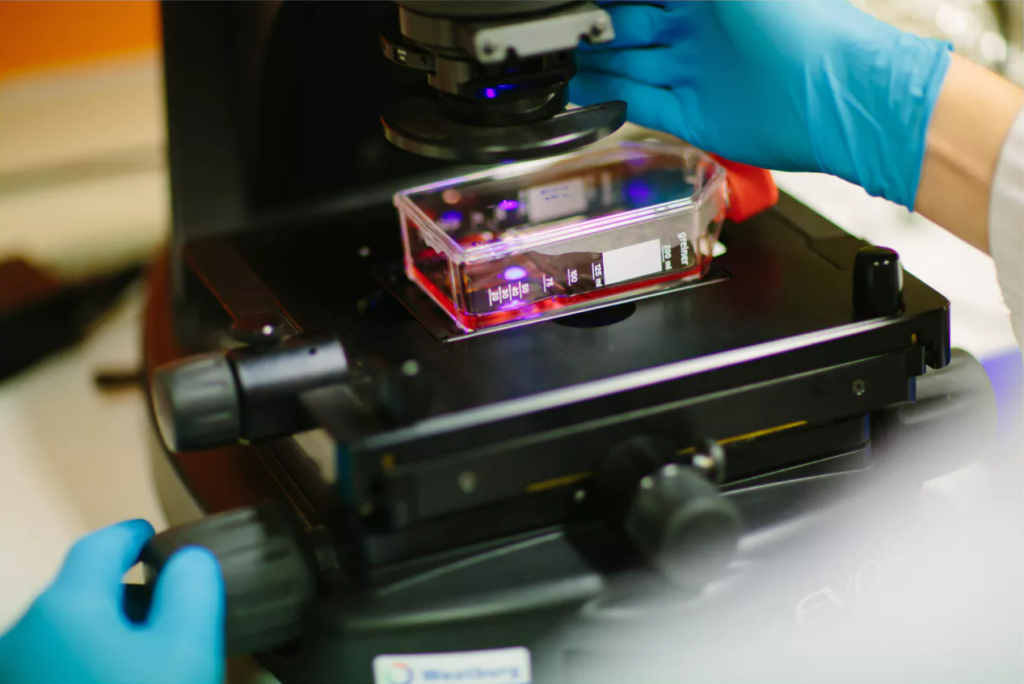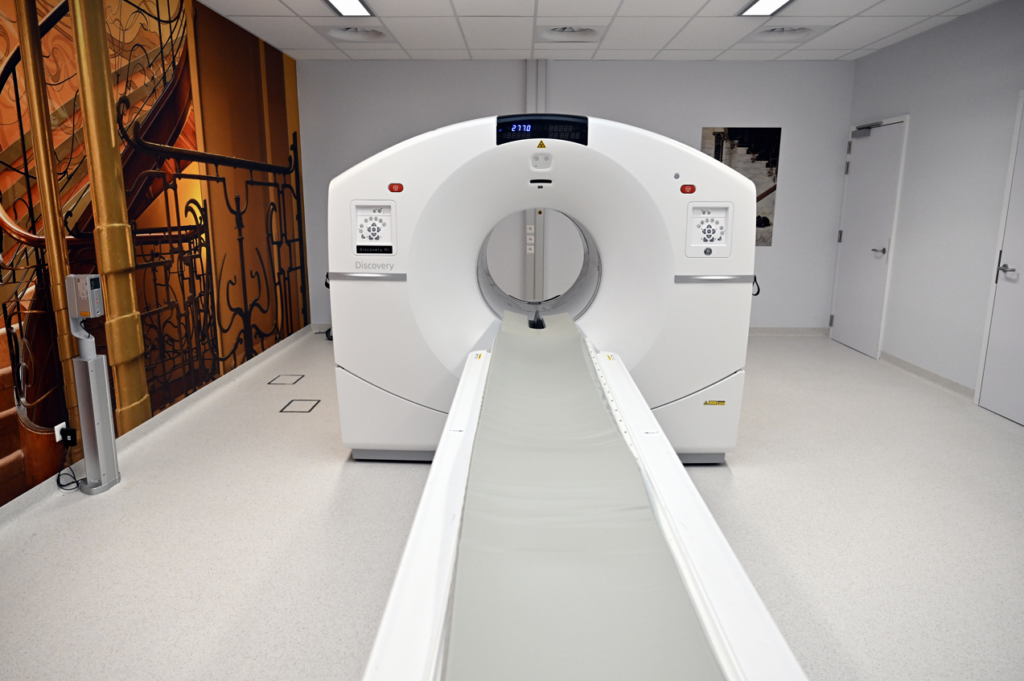Scientists at the University of Antwerp (UAntwerp) are developing a new treatment against pancreatic and advanced colorectal cancer – which are both currently difficult to treat.
The outlook for patients with pancreatic cancer or advanced colorectal cancer is usually not good: the cancers are aggressive, spread quickly and treatment often does not catch on. With financial support from the 'Kom op tegen Kanker' organisation (Fight Against Cancer), researchers have now discovered how they might yet win the battle, the UAntwerp announced.
"These cancers have a very strong defence shield of connective tissue cells that nestle around the tumours. Medicines and radiation therefore have difficulty getting to the cancer cells," professor Evelien Smits of the UAntwerp Centre for Oncological Research told VRT.
"We have now discovered that a certain protein, CD70, is located on the outside of those connective tissue cells. And that the same protein is also on the outside of cancer cells. So it is the ideal target to attack."
The attack is done by adapting cells of the immune system in the lab and giving them a kind of 'grabbing arm' that recognises the protein. That grabbing arm is called Chimeric Antigen Receptor (CAR). With it, they can grab and attack their "prey."
Natural killer cells
Pancreatic cancer is one of the most deadly cancers. Barely 13% to 14% of patients are still alive five years after diagnosis (not counting other causes of death). Additionally, the number of people with pancreatic cancer is on the rise. In 2021, some 2,250 people in Belgium were told they had pancreatic cancer – twice as many as 15 years ago. Pancreatic cancer is most common in people over 70 years old. In addition to age, smoking is the best-known risk factor.
The outlook in colorectal cancer is a little better: five years after diagnosis, 70% of patients are still alive. This cancer, too, is becoming more common. In 2021, 7,880 people were told they had colon cancer, making it the third most common cancer in both women and men in Belgium.
For colon cancer, age is also the main risk factor. In addition, an unhealthy lifestyle (smoking, alcohol, unhealthy food, little exercise, overweight) also plays a role.

Researcher looks at modified immune cells through a microscope. Credit: UAntwerp
The attack technique used already exists and has also been used successfully against certain types of blood and bone marrow cancer, but the therapy is also hugely expensive and can cause serious side effects.
"In this immunotherapy, T cells have been used so far," said Smits. "T-cells are a kind of immune cells that can destroy cancer cells, but they can also cause the immune system to go into overdrive. We can act on that and bring that back under control, but there is also a small chance that the patient will die."
Therefore, the researchers are using a different type of immune cells: natural killer cells. "These are potentially safer than T cells," cancer researcher Jonas Van Audenaerde (UAntwerpen) said. "The first clinical studies showed hardly any side effects. Additionally, we can produce these cells on a large scale from the blood of healthy donors. This is in contrast to modified T cells, which are made patient by patient from the patient's own blood."
This allows researchers to produce a large quantity of natural killer cells with grab arm at a time, which are always readily available to patients when they need them, said Van Audenaerde. "This also brings down the cost per treatment."
Testing on humans
The new immunotherapy has only been tested on mice and on human cells in the lab, but the initial results are promising. "We have shown in the lab that the natural killer cells we created recognise and destroy the right cells in the tumour," said PhD student Astrid Van den Eynde, who conducted the research.
The researchers hope that their new immunotherapy can be used in patients in five years. First, the therapy has to be prepared for testing in the clinic, everything is being prepared for that.
Further research is also underway to see if the therapy works against other cancers as well. "We have again received a budget from 'Kom op tegen Kanker' for a follow-up study. And it seems that our therapy will also work against other cancers."
The results have been published in the scientific journal Journal of Hematology & Oncology.

